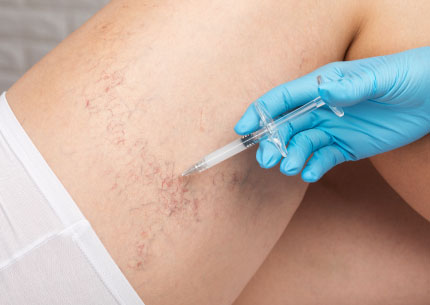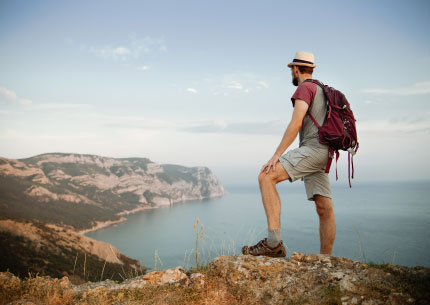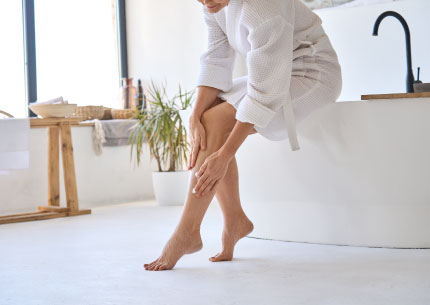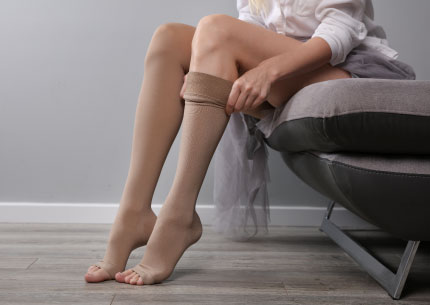What is Sclerotherapy?
Sclerotherapy is a common treatment method for spider veins. It involves injecting a sclerosant into the vein to irritate the walls and seal the vessel off from the rest of the circulatory system. Once sealed, the body will absorb it and reroute blood flow to nearby healthy veins.
Process
We will inject a sclerosant solution into your spider vein cluster to seal the vein shut. Usually, no local or regional anaesthesia is needed as sclerotherapy just feels like a pinch or a blood test.
You’ll be able to leave our clinic right after your procedure and get back to your day. You may need 2-3 sessions for the best results.


Benefits
- Minimally invasive
- Relatively painless
- Effective for spider and other small veins
- Quick procedure, only taking 30-45 minutes
- VeinViewer lets us see any feeder veins contributing to the spider vein so we can inject it and lower the chances of new spider veins popping up around the area
Sclerotherapy for spider veins preparation
- Avoid applying any lotions or creams to the treatment area on the day of the procedure
- You may be asked to avoid taking certain medications a few days before your treatment
- Wear clothing that is loose and comfortable, such as a skirt, dress, or track pants


What to do after your sclerotherapy procedure
You can get back to most of your usual activities, though you should avoid exposing the treated area to direct sunlight. We also recommend walking 30 minutes a day for at least 5 days, drinking plenty of water, avoiding strenuous activities, elevating your legs when you can, and, in some cases, wearing compression.
Complications
Sclerotherapy is a low-risk procedure. However, as with any cosmetic treatment, complications can still occur. These include hyperpigmentation, soreness, and some swelling. In very rare cases, patients may experience an allergic reaction to the sclerosant, infection, or deep vein phlebitis.
We strive to make your treatment with us as safe and comfortable as possible. We will sanitise the treatment site and cover it with a gauze bandage. During the consultation, we’ll take an allergen test to minimise your risk of an adverse reaction. We’ll also discuss some options (such as over-the-counter pain relief, elevation, light exercise, and compression) to relieve potential side effects.
